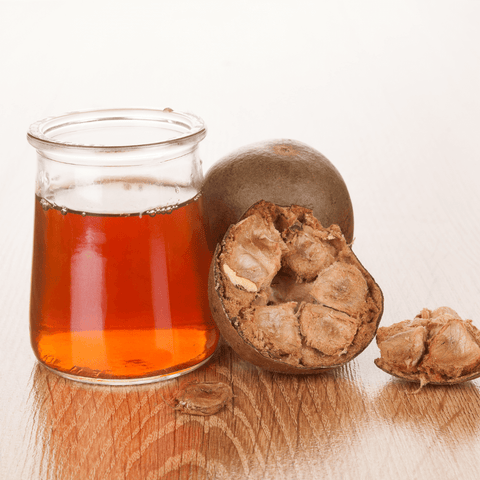Allulose is a low-calorie sweetener with an appearance and taste very similar to sugar, already used in America and Asia.
Allulose is a sweetener that occurs in small quantities in nature, it is referred to as a "rare sugar". In recent years, allulose in the USA has replaced erythritol in many sweet products intended for diabetics and those following a low carb / ketogenic diet. Its strengths are the taste very similar to that of sugar , the fact that, compared to sugar, it provides only 1/10 of calories and does not raise blood sugar and the possibility of using it also in baked goods and ice creams which using erythritol is not always feasible (or at least feasible with satisfactory results).

Health benefits of allulose
Allulose offers several potential health benefits:
1. Allulose is a low calorie sweetener. Because it has only about 0.2 percent the calories of sugar , using allulose as a substitute for traditional sugar can help reduce your overall calorie intake , which can help with weight control and calorie management.
2. Unlike other sugars like glucose or fructose, allulose has minimal impact on blood sugar and insulin . It is not completely absorbed from the small intestine and is largely excreted in the faeces. Consequently, allulose may be an appropriate choice for people who need to manage their blood sugar, such as diabetics.
3. Allulose is resistant to attack by bacteria responsible for dental caries. Unlike sugar, allulose does not provide a substrate for bacterial growth that causes tooth decay. Therefore, using allulose as a sweetener can help maintain dental health .
4. Some research suggests that allulose may have prebiotic effects that are beneficial to the gut microbiota.
5. Allulose may help reduce the risk of developing metabolic diseases such as type 2 diabetes and obesity . Its low impact on blood sugar and its low calorie content can help manage blood sugar levels and promote better weight management.
It is important to note that research into the specific health effects of allulose is still ongoing and many studies have been conducted in animal models or in vitro. More research is needed to confirm the health benefits of allulose in humans and establish optimal dosages and ways of use.
How is allulose made?
As anticipated , allulose is naturally present in nature in small quantities but obviously several steps are required to be used as a sweetener on a large scale:
1. Allulose can be obtained from various natural sources , such as fruit, maple syrup or chicory. These sources are selected based on their allulose concentration and availability.
2. The selected sources undergo an extraction process to separate the allulose from the other components present.
3. After extraction, the obtained crude allulose undergoes a purification process to remove any impurities or unwanted components.
4. Purified allulose can be concentrated by evaporation to reduce the volume and obtain a denser form that is more convenient to use.
5. Allulose can be produced and marketed in various forms, such as powder, granules or syrup, depending on the desired applications.
It is important to note that the specific details of the allulose manufacturing process may vary depending on the method and technologies used by each manufacturer. Furthermore, the allulose industry is constantly evolving and new extraction and purification techniques could be developed over time to improve the efficiency and yield of the production process.
Allulose safety and possible side effects
Allulose is considered safe for human consumption and has been evaluated as such by several regulatory authorities, including the Food and Drug Administration (FDA) in the United States while EFSA (the European food and additives regulator) does not has still approved its marketing and use in Europe. However, it is important to make some considerations:
1. Although allulose is generally well tolerated, some people may experience gastrointestinal discomfort such as gas, bloating or diarrhea when they consume large amounts of allulose. These side effects are usually mild and transient, but it is advisable to start with small amounts the first time you use it
2. Since allulose is not fully absorbed from the small intestine, it may act as a laxative in some sensitive people.
3. As with any food or food additive, it is always advisable to consult your physician before using allulose if you are on any medications or have any specific medical conditions.
4. No specific allergies to allulose have been reported, but as it has been used on a large scale for a short time, if you suspect an allergy or intolerance to allulose, it is advisable to consult an allergist or doctor for appropriate evaluation.
5. It is important to use allulose as part of a balanced and varied diet. While allulose can be an alternative to the traditional sweetener to reduce calorie intake, it is advisable to consume it in moderation and in line with general dietary recommendations.



